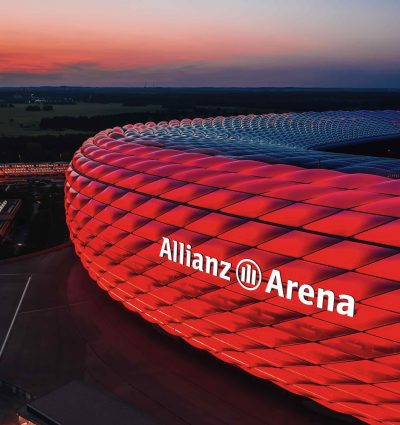
The Champions League 2025 final promises, once again, to be one of the most anticipated and spectacular events of the year. On May 31, thousands of fans from around the world will gather at the Allianz Arena in Munich, Germany, to witness the climax of the most prestigious club tournament in European soccer.
Beyond the sporting passion and the electric atmosphere in the stands, the Champions League final has also become a strategic gathering point for international celebrities, business leaders, and high-ranking political figures. This event is not only the pinnacle of a sporting competition, but it is also a stage where sport, strategy, and business converge.
The final transcends the realm of sport to become a global happening, where logistics, security, and strategic foresight are as important as the spectacle on the field.
Champions League 2025 in Munich
The Champions League 2025 final will be held at the Allianz Arena in Munich, one of the most iconic and modern stadiums in Europe. Inaugurated in 2005 and with a capacity of over 75,000 spectators, it is renowned for its luminous facade and for hosting major football events, including the 2012 final and matches during the 2006 World Cup.
UEFA, in collaboration with local authorities and Bayern Munich, has prepared top-tier logistical infrastructure for the event, ensuring a smooth sporting event transportation, robust security, and an exceptional experience for attendees. With its international airport and high-quality hotel network, Munich reaffirms its status as a premier host city, ready to welcome fans, business leaders, and dignitaries from around the world.
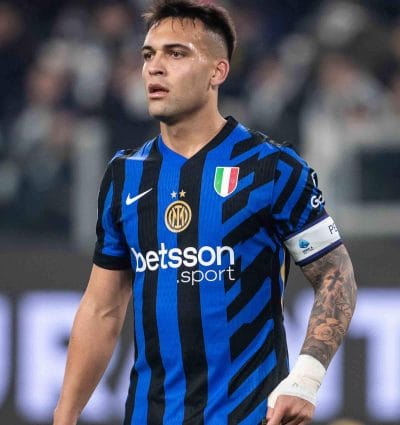
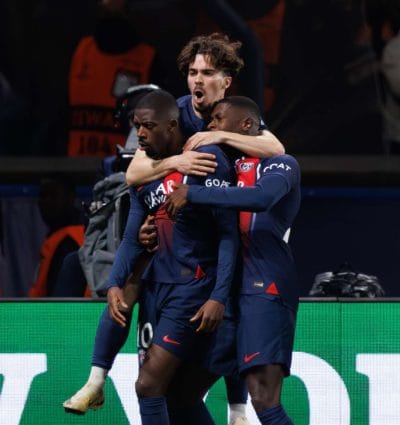
Who are the finalists in the Champions League 2025?
In a move to modernize the tournament, UEFA has introduced a new format for the Champions League this year. Now, 36 teams compete in a single league instead of the traditional 32 divided into groups. Each club plays eight matches against different opponents, and the top 24 advance to the knockout stage, with the best eight qualifying directly for the round of 16.
This new system has sparked mixed reactions. Some see it as an opportunity to boost excitement and revenue, offering greater variety in team matchups. Others, however, criticize the increased number of games, the complexity of the schedule, and the loss of the classic group stage format.
The UEFA Champions League finalists are now confirmed: Inter Milan and PSG. The Italian team, with three titles in its history, returns to the final to reaffirm its European legacy. PSG, on the other hand, will be aiming to win the tournament for the first time after several seasons competing at the highest level.
Last year, Real Madrid secured its 15th European Cup, extending their record by defeating Borussia Dortmund in the final. This year, the competition promises to be just as intense, with historic clubs ready to fight for the European crown.
Business behind elite soccer
As with other major global events like the Super Bowl, the Champions League extends far beyond the game itself. Its impact reaches well outside the stadium, generating billions of euros in revenue from a variety of sources. Ticket sales and tourism driven by fans that travel to the Champions League are just the beginning. Official merchandising and advertising, both in stadiums and across media platforms, also represent significant income streams for clubs and UEFA. With this year’s new format, these commercial benefits are expected to grow even further.
Television rights ensure global coverage, with audiences exceeding 400 million viewers. This worldwide reach makes the Champions League one of the most lucrative audiovisual properties on the planet, generating over €2 billion annually from broadcast rights alone.
Additionally, streaming platforms like Amazon Prime and YouTube, alongside major sponsors such as Heineken, PlayStation, and FedEx, leverage this spectacle to align their brands with one of the most-watched sporting events in the world.
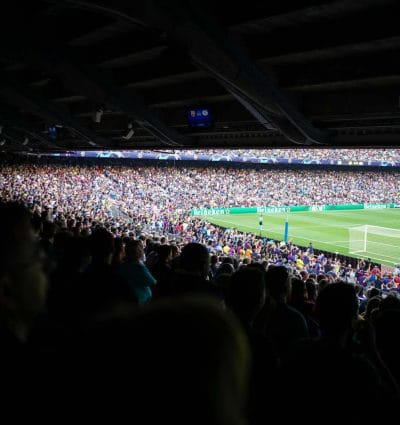
A box at the Champions League to close business deals
A Champions League box is not just a prime spot to enjoy soccer, it turns into an exclusive networking hub. Heads of state, corporate executives, and influential figures from the political, business, and sporting scene converge in these private spaces.
Beyond the thrill of the game, these areas offer the ideal setting for discreet and informal meetings, allowing key business deals to be made and strategic alliances to be forged between corporations from around the world.
Just as teams on the field need a strategic vision, the ability to anticipate, and the capacity to work together to achieve victory, executives and business leaders in the VIP boxes must also employ a clear strategy and long-term perspective to maximize the impact of their decisions. In both business and sport, anticipation and teamwork are key for success.
Safety in logistics and transportation, invisible and indispensable
Coordinating the arrival of thousands of people to the event while maintaining security is a monumental task. In addition to the fans filling the stadiums, high-profile figures, including political leaders, business magnates, celebrities, and executives, must be safely escorted through emotionally charged crowds, all under stringent international security protocols.
On match day, advanced security measures are in place, including drone surveillance, threat detection systems, controlled access zones, and traffic restrictions, all of which can delay or complicate arrival if not properly planned for in advance.
In this context, having a Champions League private chauffeur becomes a strategic solution. It not only helps avoid traffic disruptions through pre-arranged routes but also ensures discretion, punctuality, and seamless coordination with official security procedures.
Effective Champions League final travel organization and planning are vital for moving safely and discreetly, especially when the match extends into extra time.
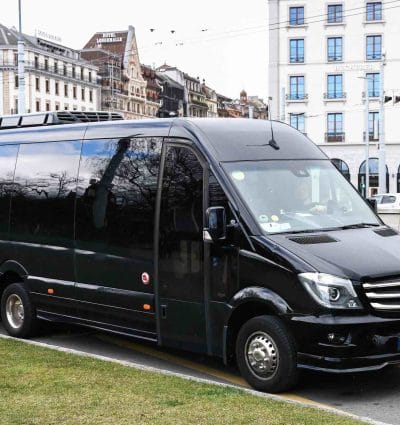
At Drivania Chauffeurs, we specialize in providing executive transportation services for high-level sporting events. We handle all logistical aspects to ensure transfers are executed with the highest standards of security, privacy, and comfort. By coordinating closely with your team and relevant authorities, we guarantee exclusive access to VIP areas and a seamless, worry-free experience, allowing you to enjoy while you travel to the Champions League final with complete peace of mind.